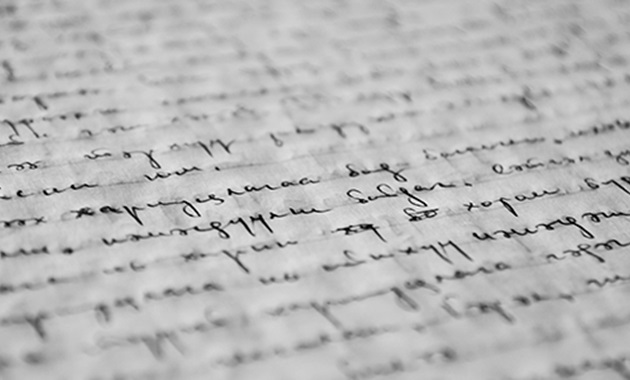Get helpful advice and guidance
with Copyright
Use
this website as a guide to Copyright - what it is and how it may affect
you during your time at Murdoch University.
You will find helpful
advice and support on creating and delivering teaching materials,
completing your thesis and publishing your work.
If you can not find an answer here, or you need personalised advice, contact the Copyright Coordinator.
Copyright basics
Copyright is the legal system intended to balance the requirements of both creators and users of ‘works’ that express facts, ideas, concepts, and so on. It protects the rights of a work’s copyright owner, and also provides a number of exceptions so that other people can make some use of that work in certain circumstances.
All teaching and learning materials are copyright protected ‘works’. This includes not just book chapters and journal articles, film, television and other audio-visual content, but everything else as well: unit study guides, lecture notes, quizzes and exam questions, slide presentations and the text and images used in them, recorded lectures, etc. None of these works should be passed on or sold outside the University, either online or in print.
Murdoch University staff and students are expected to comply with the Copyright Act 1968 (Cth), and with both the University Copyright Policy and Intellectual Property Regulations.
Copyright protection in Australia generally lasts for the life of the author plus 70 years from the year of their death, or 70 years from the end of the year of first publication, depending on the circumstances.
The duration of copyright protection for unpublished and orphan works (where the identity of the author is not known) changed on 1 January 2019. For more information on copyright duration see the Department of Communications and the Arts' Duration of Copyright PDF.
Copyright in a work is (usually) owned by the original author/creator of that work. Some exceptions and considerations include:
- copyright in works created by an employee (usually) belong to the employer
- a work is automatically protected by copyright as soon as it is given 'material expression' – that means a work has been created
- copyright does not protect ideas or facts.
The copyright owner’s rights
The copyright owner of a work has the exclusive right to: copy, publish, and perform it; communicate it online; translate or adapt it; and to assign, transfer, or sell ownership of the work to someone else.
Regardless of who has ownership of the copyright in a work, its protection endures for the life of the author plus 70 years.
Any copy, adaption, translation, or communication of a work without the Copyright owner’s permission may be infringement of Copyright, unless these have been made under the ‘fair dealing’ exceptions, or under another provision of the
Copyright Act such as the Educational Statutory Licence.
You must seek the Copyright owner’s permission to use a work unless you are covered by an exception or provision.
EndNote and Copyright
The Copyright Act divides materials protected by copyright into two broad categories: ‘works’, and ‘subject matter other than works’.
Works
- Literary works, e.g. journal articles, books, newspapers, poems, theses, computer programs.
- Artistic works, e.g. paintings, photographs, drawings, architectural plans, building and sculptures.
- Dramatic works, e.g. choreography, plays and film scripts.
- Musical works, e.g. sheet music.
Subject matter other than works
- Broadcasts, e.g. radio and television broadcasts.
- Films, e.g. theatrical films, DVDs, video recordings.
- Sound recordings, e.g. CDs, MP3 files, cassette tapes, vinyl recordings.
- Published editions, e.g. the format and typesetting of a publication.
Copyright does not protect ideas, concepts, styles, techniques and information – rather, it protects the expression of ideas. It also does not protect names, titles and slogans – however these may instead be protected under trademark law.
Moral rights
Moral rights are the personal (non-economic) rights held by the author of a work. These rights cannot be sold or transferred unlike copyright, although in some cases a creator can give consent for their rights not to be observed.
Moral rights are retained by a creator or author even when the Copyright Act allows copyright in their work to be automatically vested with an employer.
Moral rights last for the same length of time as copyright (life of the author plus 70 years)
The Rights
- The Right of attribution: the author of a work has the right to be named as the author of that work.
- The Right not to be falsely attributed: an author has the right not to have another person named as the author of their work.
- The Right of integrity: an author has the right not have their work treated in a derogatory way.
Failure to correctly attribute a work is an infringement of the author’s moral rights.
Copyright is important for you during your time as a student at Murdoch University. It applies to you using the work of others and also to the work you create.
- When using the work of others (such as journal articles, book chapters, thesis, research, data, diagrams, websites, pictures), anything that you didn’t create yourself is known as a third party work and is protected by copyright. You may, however, use fair portions for education purposes.
- As the author of an original work, you own the copyright of your assignments. Copyright in a group assignment belongs to all the students who have contributed. The same applies to research papers and articles that have multiple authors.
Using third party works for research and in assignments
Fair Dealing for research or study is a provision in the Copyright Act that allows you to copy a limited amount of a third party work without having to ask permission from the copyright owner, or having to pay any royalty fee, if it is to be used for your study or research.
For text based works, printed or digital: you may copy a ‘reasonable portion’:
- 1 chapter or 10% of a book (whichever is greater),
- 1 article from any one issue of a journal (more, if the subsequent articles are required for the same research as the first),
- a work of up to 15 pages from an anthology.
This provision also allows you to include a reasonable portion of a work in an essay, tutorial presentation, or other assignment. Referencing is always required.
Fair Dealing provisions mean that you may include quotations, images, and extracts of music, broadcasts, film and video material in your assignments – but only for assessment at Murdoch University. You must not then submit the assignment
to a festival or competition, or upload it anywhere online, as these uses are not considered to be Fair Dealings.
For graphic and audio-visual materials, the Copyright Act does not define a reasonable portion for these formats. When using third party materials of this kind you must consider whether the amount you want to copy for your research, or to use
in an assignment, is ‘fair’. This will usually be an extract of the work rather than its entirety.
Making your own copies of Unit Readings
Fair Dealing provisions and educational licences mean that you may make a single copy of journal articles, book chapters, etc. that you have been given via My Unit Readings. You must not:
- make or give copies to other people,
- upload them to ‘note-sharing’ sites or any other websites (including blogs or social media).
Doing any of the above could result in an academic or general misconduct case being raised against you.
These policies outline Murdoch’s copyright policy and the intellectual property rights of Murdoch staff and students.
If you have any questions about these policies, please contact the University Copyright Coordinator.




